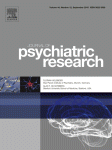 A team of neuroscientists from Sweden has retracted their 2013 paper in Brain, Behavior, and Immunity after discovering that they’d made a mistake while merging their data.
A team of neuroscientists from Sweden has retracted their 2013 paper in Brain, Behavior, and Immunity after discovering that they’d made a mistake while merging their data.
According to the abstract, the study, “Lower CSF interleukin-6 predicts future depression in a population-based sample of older women followed for 17 years,” purported to find that: Continue reading Doing the right thing: Team finds data merge error in depression paper, retracts







